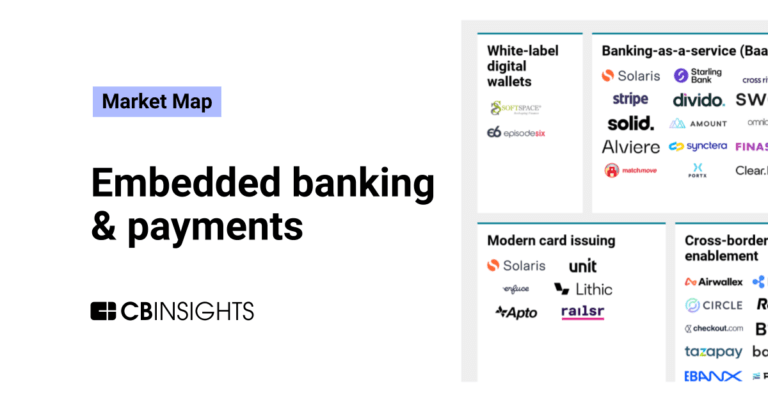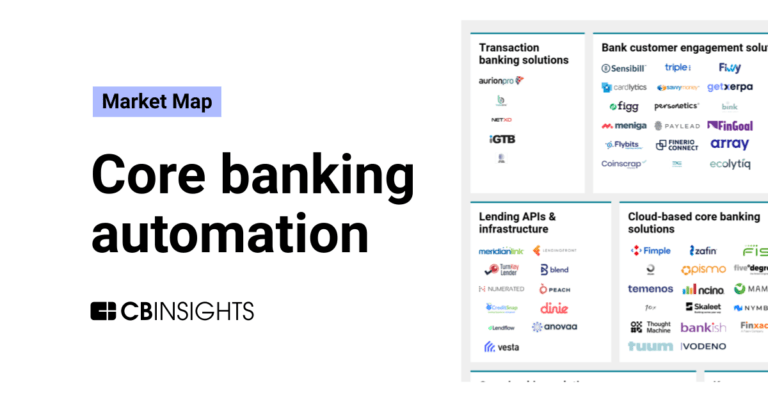
Unit
Founded Year
2019Stage
Series C | AliveTotal Raised
$173.2MValuation
$0000Last Raised
$100M | 3 yrs agoMosaic Score The Mosaic Score is an algorithm that measures the overall financial health and market potential of private companies.
-16 points in the past 30 days
About Unit
Unit is a financial technology company that specializes in embedded finance and financial infrastructure within the banking and lending sectors. The company offers a platform that enables tech companies to integrate banking services, such as storing, moving, and lending money, into their products. Unit's services are designed to facilitate compliance and simplify technical integration for businesses looking to offer financial services. It was founded in 2019 and is based in New York, New York.
Loading...
Unit's Product Videos
_thumbnail.png?w=3840)
ESPs containing Unit
The ESP matrix leverages data and analyst insight to identify and rank leading companies in a given technology landscape.
The banking-as-a-service (BaaS) market provides infrastructure platforms for banks and fintechs to modernize their services and expand their customer base through embedded banking and payment options. These providers offer APIs that enable businesses to integrate banking capabilities such as account opening, transaction processing, card issuance, payment rails, and compliance tools. BaaS solutions…
Unit named as Challenger among 15 other companies, including Stripe, FIS, and Plaid.
Unit's Products & Differentiators
Banking-as-a-service API
The Unit API lets you create accounts, cards, payments, and lending
Loading...
Research containing Unit
Get data-driven expert analysis from the CB Insights Intelligence Unit.
CB Insights Intelligence Analysts have mentioned Unit in 3 CB Insights research briefs, most recently on May 8, 2024.

May 8, 2024
The embedded banking & payments market map
Jan 4, 2024
The core banking automation market map
Oct 3, 2023 report
Fintech 100: The most promising fintech startups of 2023Expert Collections containing Unit
Expert Collections are analyst-curated lists that highlight the companies you need to know in the most important technology spaces.
Unit is included in 5 Expert Collections, including Unicorns- Billion Dollar Startups.
Unicorns- Billion Dollar Startups
1,276 items
Payments
3,198 items
Companies in this collection provide technology that enables consumers and businesses to pay, collect, automate, and settle transfers of currency, both online and at the physical point-of-sale.
Fintech
9,653 items
Companies and startups in this collection provide technology to streamline, improve, and transform financial services, products, and operations for individuals and businesses.
Digital Banking
1,016 items
The open banking ecosystem is facilitated by three main categories of startups including those focused on banking-as-a-service, core banking, and open banking startups (i.e. data aggregators, 3rd party providers). These are primarily B2B companies, though some are also B2C.
Fintech 100
599 items
250 of the most promising private companies applying a mix of software and technology to transform the financial services industry.
Unit Patents
Unit has filed 3 patents.
The 3 most popular patent topics include:
- honeycombs (geometry)
- house styles
- house types

Application Date | Grant Date | Title | Related Topics | Status |
|---|---|---|---|---|
4/4/2018 | 10/25/2022 | Fluid dynamics, Hydrology, Aerodynamics, Wave mechanics, Acoustics | Grant |
Application Date | 4/4/2018 |
|---|---|
Grant Date | 10/25/2022 |
Title | |
Related Topics | Fluid dynamics, Hydrology, Aerodynamics, Wave mechanics, Acoustics |
Status | Grant |
Latest Unit News
Jun 10, 2025
| Membership (fee-based) Share Save Serge Beck, the founder and CEO of Omniwire , is driven by his belief that people deserve robust and secure financial services. getty For the past decade, most fintech success stories have appeared similar from the outside: intuitive mobile apps, sleek interfaces and rapidly growing user bases. However, something has changed. Today's important innovations in fintech are no longer visible to the end user. They are happening in the infrastructure layer that makes modern financial services possible. Quietly, these systems are becoming the foundation for the next generation of fintech unicorns. Founders are no longer trying to compete solely on the interface. Investors are no longer rewarding shallow growth. Users are no longer impressed by a clean dashboard if the service behind it is slow, limited or unreliable. According to CB Insights, the Fintech 100 cohort has raised nearly $22 billion in equity funding across 381 deals since 2019. Among the winners in 2023 were core banking and infrastructure platforms. What Is Invisible Infrastructure In Fintech? Invisible infrastructure refers to the core technologies that support financial products behind the scenes without being seen by the end user. From payments and identity verification to compliance and core banking, this infrastructure forms the backbone of every fintech offering. Key infrastructure categories include: Banking-As-A-Service (BaaS): Enables nonbanks to offer regulated financial services such as accounts, payments and lending under their brand. Payment Processing Systems: Facilitate fast, secure payment initiation, routing and settlement. The global digital payments market is projected to reach $19.89 trillion by 2026. Card Issuing Technology: Powers creating and managing physical and virtual payment cards at scale. Compliance And Risk Engines: Automate critical functions like anti-money laundering checks, transaction monitoring and identity verification. In practice, here's how it looks: When a fintech app lets a user open an account, send a payment or issue a debit card, that front-end interaction is powered by an invisible stack of infrastructure services. Several companies have emerged to lead this shift: • Unit offers embedded banking platforms that allow startups to offer accounts, cards and payments by integrating directly with banking rails. • Alloy helps fintech automate identity verification and risk decisions, enabling faster onboarding while staying compliant with global regulations. These infrastructure players do not market to consumers or need brand recognition among end users. Instead, they focus on delivering reliability, scalability and compliance to the companies building consumer-facing products. Why Fintech Companies Are Choosing To Build On Infrastructure According to Boston Consulting Group , the global fintech market is expected to reach $1.5 trillion annually by 2030. Much of that growth will be driven not by flashy apps but by the infrastructure quietly powering them. Here are the key reasons driving this trend: Faster Speed To Market Launching a financial product used to take months of engineering work. Infrastructure providers now allow companies to go live in weeks. APIs replace the need to build core systems from scratch, which means startups can focus on customer experience rather than back-end development. Lower Operational Complexity Infrastructure platforms handle payments, KYC, fraud detection and ledger management so companies do not have to. That means fewer internal resources are needed to build and maintain core functions. Built-In Regulatory Support Regulations in fintech change often and vary by region. Infrastructure providers are designed to keep up with these shifts. They build compliance into their systems, reducing the chance of mistakes and delays. Risks And Challenges Of Building On Invisible Infrastructure While invisible infrastructure has become a foundational part of how fintech is built today, it is not without its challenges. One of the first challenges is platform dependency. When a company integrates deeply with an infrastructure provider, switching costs rise quickly and migrating away is rarely simple. Regulatory responsibility is another key consideration. While many infrastructure providers offer built-in compliance features, the ultimate responsibility for compliance often still rests with the company offering the financial product. Security and data handling can also become more complex. Even when providers are compliant, any breach or downtime from the third-party infrastructure affects not just one company, but potentially dozens of customers relying on the same infrastructure. Lastly, the long-term economics of building on infrastructure should be carefully evaluated. While upfront costs are lower, and speed to market is faster, the cumulative fees from usage-based pricing can grow significantly at scale. What looks like operational efficiency in the early stages can turn into a margin challenge as the business matures. This doesn’t mean the model is flawed. However, it does require careful forecasting to keep unit economics healthy over time. What Founders And Investors Should Now Focus On As this infrastructure becomes the default way to build in fintech, what success looks like for operators and those backing them is changing. Founders Should Focus On Product Differentiation And User Value Startups succeed by moving fast and focusing on their edge. For fintech founders, that edge is rarely in building internal compliance systems, managing bank integrations or handling payments infrastructure from the ground up. Instead, founders should direct their energy toward what sets their product apart. Everything else, like payments, identity verification, card issuance and account creation, can and should be handed off to trusted infrastructure providers. Investors Should Look Deeper Into The Stack For investors, this shift changes how they should evaluate early-stage fintech opportunities. Consumer-facing products will always have appeal, but the more durable value often sits in the companies that enable those products. Infrastructure companies benefit from: High retention, because once integrated, they are hard to replace. Recurring revenue is important since they typically charge per user, per transaction or via platform fees. Scale without exposure because they support many customers without taking on direct regulatory or reputational risk from end users. These traits make infrastructure businesses highly attractive, especially in uncertain or highly competitive markets. They also grow and benefit from the ecosystem's success rather than just their own. For investors, the takeaway is clear: Backing the right infrastructure company means betting not just on one business model but an entire generation of fintech builders who depend on it.
Unit Frequently Asked Questions (FAQ)
When was Unit founded?
Unit was founded in 2019.
Where is Unit's headquarters?
Unit's headquarters is located at 215 Park Avenue South, New York.
What is Unit's latest funding round?
Unit's latest funding round is Series C.
How much did Unit raise?
Unit raised a total of $173.2M.
Who are the investors of Unit?
Investors of Unit include Flourish Ventures, Better Tomorrow Ventures, Accel, Insight Partners, TLV Partners and 13 more.
Who are Unit's competitors?
Competitors of Unit include Infinant, Synctera, NovoPayment, BM Technologies, NoFrixion and 7 more.
What products does Unit offer?
Unit's products include Banking-as-a-service API and 4 more.
Who are Unit's customers?
Customers of Unit include Benepass, Wethos, Moves and Tribevest.
Loading...
Compare Unit to Competitors

Synctera is a banking and payments platform that provides technology infrastructure and a compliance framework for companies to launch FinTech and embedded banking products. The company offers services including APIs for digital wallets, debit and charge cards, and money movement experiences, supporting financial solutions. Synctera primarily serves FinTechs, embedded banking providers, and banks looking to build their sponsor banking programs. It was formerly known as Entangle. It was founded in 2020 and is based in Palo Alto, California.

Productfy is a platform that specializes in the embedding of financial products within various business sectors. The company offers a suite of services, including branded card programs, digital banking solutions, secured charge card issuance, and disbursement mechanisms, all designed to be integrated seamlessly into clients' applications. Productfy primarily serves sectors such as community banks, credit unions, real estate, financial services, and insurance. It was founded in 2018 and is based in San Jose, California.

Treasury Prime is an embedded banking platform that specializes in connecting businesses with a network of banks and financial service providers. Its main offerings include API banking integrations that enable companies to develop and launch financial products such as FDIC-insured accounts, payment processing solutions, and debit card issuance. Treasury Prime's platform is designed to support compliance program integration and multi-bank operations, facilitating the creation of investment vehicles and instant payout ecosystems for various industries. It was founded in 2017 and is based in San Francisco, California.

NovoPayment specializes in providing Banking as a Service (BaaS) platforms and focuses on digital financial and transactional services. The company offers a suite of bank-grade solutions, including digital banking, payment processing, card issuing, and risk management services, all designed to integrate with existing systems for financial operations and customer experiences. NovoPayment primarily serves banks, financial institutions, merchants, and other financial service providers looking to digitize and modernize services. It was founded in 2007 and is based in Miami, Florida.
Hydrogen operates as a no-code embedded finance company. It offers United States dollar (USD) banking services, wealth management, personal financial management (PFM), and cryptocurrency payments solutions. The company was founded in 2017 and is based in Miami, Florida.

Sila operates as a financial technology company that focuses on providing a payment platform. The company offers a range of services including fast money transfers, identity verification, fraud prevention, and bank account linking. Its services are primarily targeted towards the fintech industry. It was founded in 2018 and is based in Portland, Oregon.
Loading...
